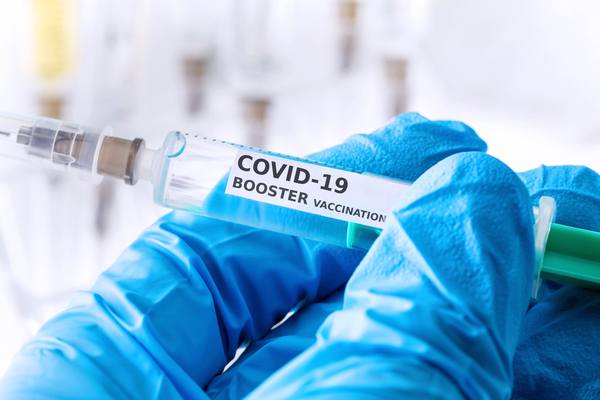The Centers for Disease Control and Prevention (CDC) has been advising everyone 18 years and older who have received their COVID-19 vaccination to get a booster. And as of Thursday, anyone over the age of 16 has been cleared to get boosters as well. So, as the original Covid-19 virus continues to mutate, as viruses do, experts are saying that this additional booster shot may become necessary every year.
That recommendation was reemphasized this week with the emergence of the Omicron variant. “If you’ve had the [Johnson & Johnson] vaccine, the recommendation is you need only wait 2 months and then you should get the booster… and if you have had one of the mRNA vaccines, Pfizer or Moderna, it’s 6 months after you’ve had your second dose,” Dr. William Schaffner, an infectious disease expert at Vanderbilt University in Tennessee, said in an interview with Healthline.
“The main virtue, of course, is to reinforce the immune system’s capacity to avert serious disease, to prevent hospitalization,” he explained. “That’s the main intention. There may also be some reduction in transmission if you should get a breakthrough, milder infection, so that would be in effect, a bonus.”
CDC officials say people can choose whether they would prefer a Pfizer, Moderna, or J&J booster shot, but Schaffner says those who have the single-dose J&J vaccine may benefit from having an mRNA booster. “It would appear that the J&J vaccine, which was originally designed and hoped to be a one-dose vaccine… wasn’t as potent, and wasn’t as effective, because you have a much more rapid decline in protection against serious disease,” he said.
“That’s why the recommendation is you only wait 2 months before you get a second dose. And that second dose can be of the J&J vaccine; you will get a boost. But if you get the second dose from one of the mRNA vaccines, you get an even higher response,” Schaffner added.
Here’s how it works: booster shots basically build on the immunity given in the original COVID-19 immunization series. “After we get immunized, then we have the memory T cells that are created that are circulating, and if we expose them to the antigen again… then this will result in them multiplying and them forming more antibodies and more cells. And so that’s what results in the additional protection,” Dr. Dean A. Blumberg, chief of pediatric infectious diseases at the University of California, Davis, said in an interview with Healthline.
“For those 65 years of age and older, the immunity dose wanes starting at 6 months, so there is an increasing rate of hospitalization with the breakthrough infections,” he explained. “However, we do know that the immune memory remains strong, and that’s why giving one additional dose does result in a very robust immune response.”
As Healthline reports, both Schaffner and Blumberg say it’s too early to tell how frequently boosters may be required. However, a COVID-19 shot may need to occur at some frequency for years into the future. “We’re learning as we go along. None of us would be surprised if there would be a need for boosters at some interval. Would it be a year, 2 years, 5 years? We don’t know,” Schaffner said.
He says that in anticipation of boosters being necessary, vaccine scientists are already beginning to combine the influenza vaccine with COVID-19 vaccination. “If the recommendation… is there be an annual booster, they would have a combination vaccine ready to go at that time,” he said.
Blumberg says the idea of COVID-19 booster shots being given at the same frequency as influenza vaccines, on an annual basis, is a possibility. “I would hope that we don’t need a booster every 6 months. We’ll see, maybe it will be yearly or maybe it won’t even need to be that often. I fully expect that COVID-19 is going to be around with us forever, and we’re not going to eliminate it unless there’s fantastic breakthroughs in vaccine development. But I think it’s going to be very similar to influenza,” he said.
“So maybe we would get a vaccine every fall like we do for influenza,” Blumberg added. “We know for influenza vaccine in the U.S. general population, the immunization rate generally hovers around 50 percent. I would guess over time that as people become less concerned about COVID-19 that it might be similar to that, that we might have about a 50 percent yearly immunization rate for COVID-19.”
—
Photo Credit: Tobias Arhelger / Shutterstock.com
